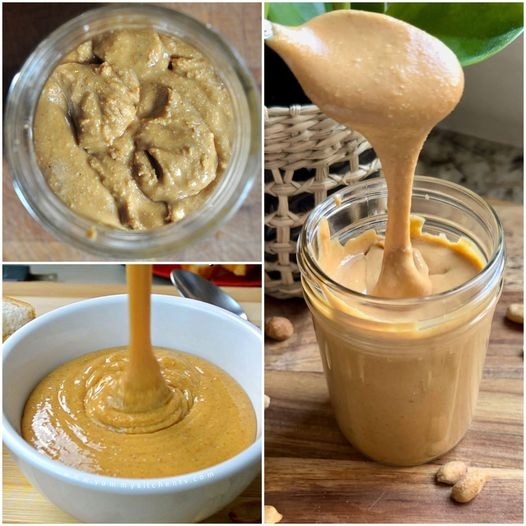ADVERTISEMENT
Peanut butter is a common food in many homes, liked for its smooth texture and ability to be used in a variety of ways, such as in sandwiches or smoothies. However, there are some important things you should know before including it regularly in your diet. Here are some possible negative effects of eating peanut butter.
Possible Health Issues
1. Lots of Calories:
Peanut butter has a lot of calories. Two tablespoons have about 190 calories. Eating a lot of it can make you gain weight if you don’t also eat low-calorie foods.
2. Sugars and Oils:
A lot of peanut butter brands sold in stores have extra sugar and unhealthy oils that can raise the chances of heart problems, obesity, and other health problems. Always look at the list of ingredients and choose natural options that do not contain these additives.
Aflatoxins:
Peanuts can have a type of mold called aflatoxins, which create harmful substances. Being exposed to aflatoxins for a long time can cause liver cancer. Although there are rules to control aflatoxin levels in peanut products, it is still important to be aware of this potential risk.
4. Allergic reactions:
Peanut allergies are widespread and can be serious, leading to symptoms like skin rashes, swelling, and severe allergic reactions. Even if you are not allergic to peanuts, it is important to be careful about cross-contamination if you live with or spend time with people who have this allergy.
5. Fats that are good for you: Omega-6.
Peanuts have a lot of omega-6 fatty acids. Eating too many of them can upset the balance of omega-3 fatty acids in your diet. This lack of balance can cause inflammation and raise the chances of getting long-term illnesses.
Healthier Options
Almond spread:
Almond butter has fewer calories and saturated fat than peanut butter. It is also rich in vitamin E, magnesium, and fiber.
Sunflower seed spread:
This is an excellent option for people who are allergic to nuts. It contains good fats, vitamins, and minerals, and has a slightly sweet and nutty taste.
3. Butter made from cashew nuts:
For ingredients and full cooking instructions, continue reading (>)
ADVERTISEMENT
